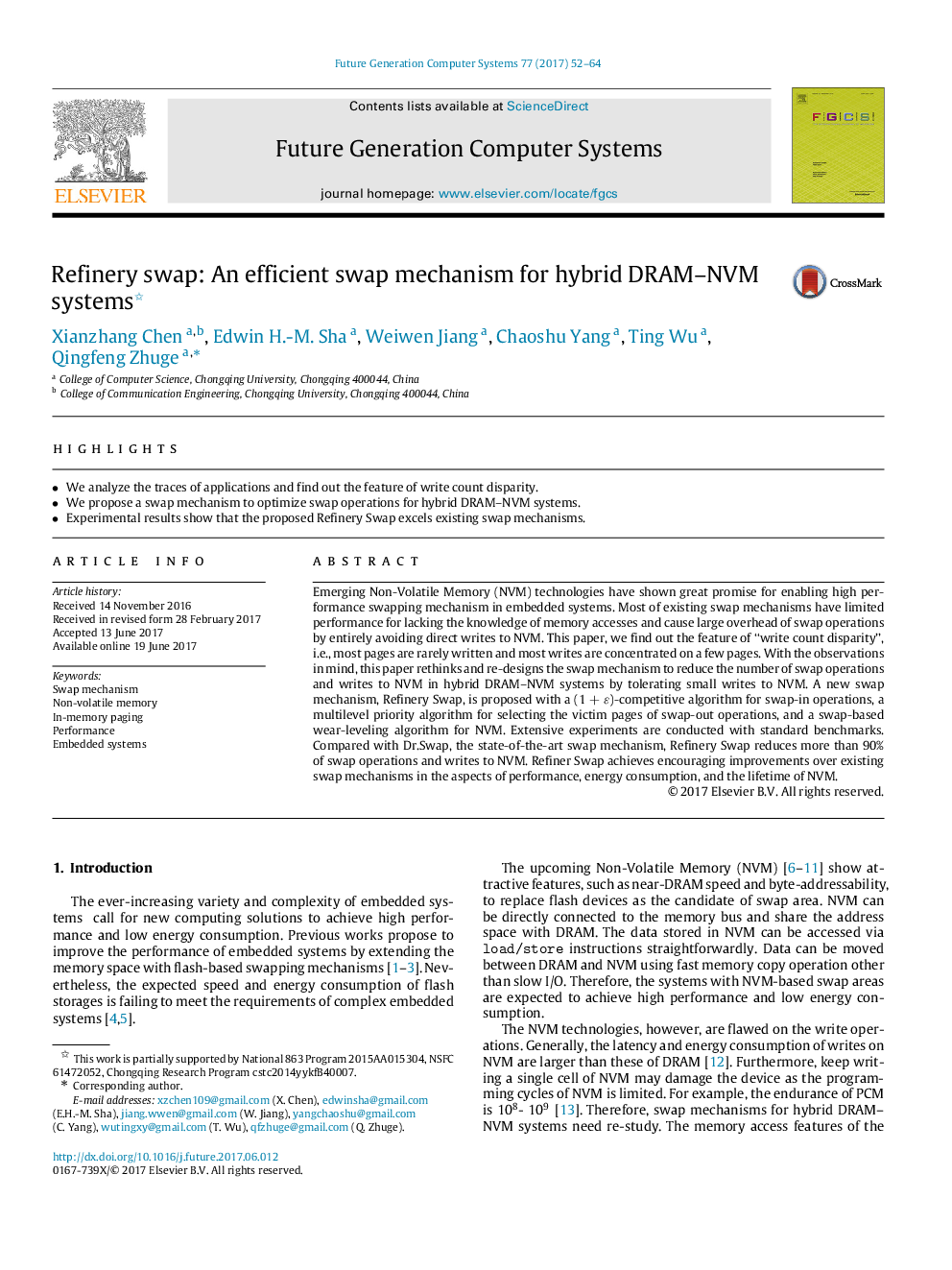| Article ID | Journal | Published Year | Pages | File Type |
|---|---|---|---|---|
| 4950174 | Future Generation Computer Systems | 2017 | 13 Pages |
Abstract
Emerging Non-Volatile Memory (NVM) technologies have shown great promise for enabling high performance swapping mechanism in embedded systems. Most of existing swap mechanisms have limited performance for lacking the knowledge of memory accesses and cause large overhead of swap operations by entirely avoiding direct writes to NVM. This paper, we find out the feature of “write count disparity”, i.e., most pages are rarely written and most writes are concentrated on a few pages. With the observations in mind, this paper rethinks and re-designs the swap mechanism to reduce the number of swap operations and writes to NVM in hybrid DRAM-NVM systems by tolerating small writes to NVM. A new swap mechanism, Refinery Swap, is proposed with a (1+ε)-competitive algorithm for swap-in operations, a multilevel priority algorithm for selecting the victim pages of swap-out operations, and a swap-based wear-leveling algorithm for NVM. Extensive experiments are conducted with standard benchmarks. Compared with Dr.Swap, the state-of-the-art swap mechanism, Refinery Swap reduces more than 90% of swap operations and writes to NVM. Refiner Swap achieves encouraging improvements over existing swap mechanisms in the aspects of performance, energy consumption, and the lifetime of NVM.
Related Topics
Physical Sciences and Engineering
Computer Science
Computational Theory and Mathematics
Authors
Xianzhang Chen, Edwin H.-M. Sha, Weiwen Jiang, Chaoshu Yang, Ting Wu, Qingfeng Zhuge,
